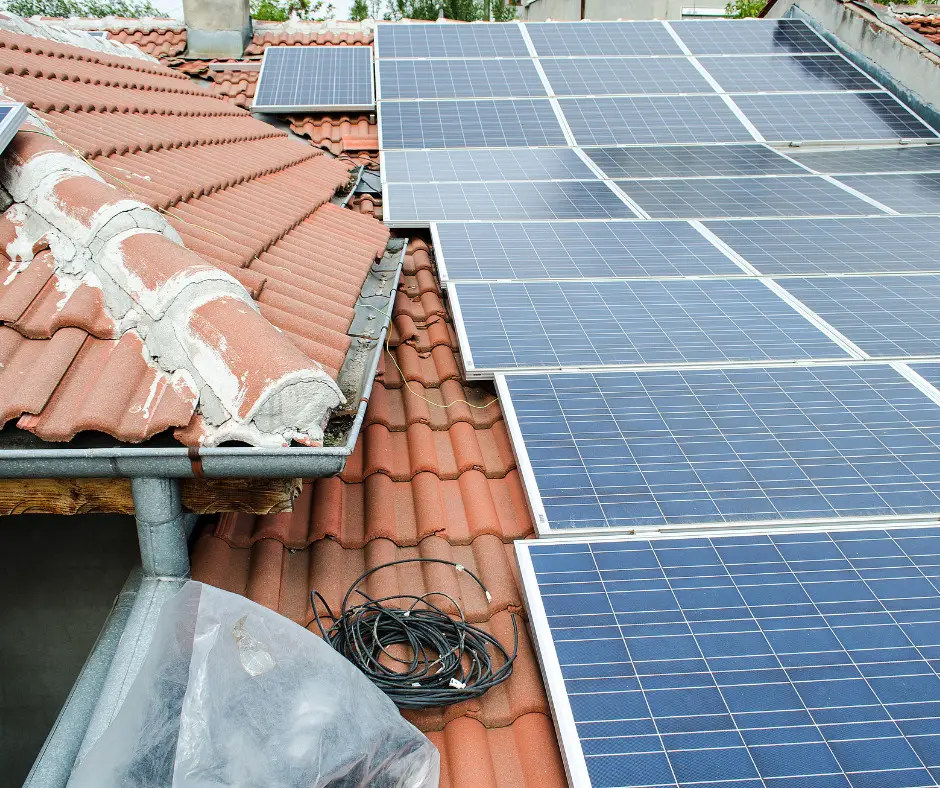Transitioning to solar energy is an environmentally responsible and cost-effective decision. However, before making this move, it’s crucial to consider the state of your existing roof. In this article, we’ll explore the importance of replacing your roof before installing solar panels, the reasons behind this choice, and the benefits it brings to your solar energy system.

Why Replace Your Roof Before Solar Panels?
The Foundation of Solar Energy
When it comes to solar panel installation, the roof plays a significant role. It serves as the foundation for your solar energy system, and its condition can greatly affect the efficiency, longevity, and safety of the panels. Here are some compelling reasons to consider replacing your roof before going solar:
1. Structural Integrity
A well-maintained and structurally sound roof ensures that your solar panels are installed on a stable platform. A compromised roof could lead to costly issues, such as leaks and damage to your solar investment.
2. Longevity
Solar panels are designed to last for decades, often with warranties of 20 to 25 years. To maximize their lifespan and your return on investment, it’s essential to have a roof with a similar or longer life expectancy.
3. Safety
A new roof provides a secure surface for solar panel installation. It minimizes the risk of accidents during the installation process and while conducting maintenance on the solar system.
4. Installation Efficiency
When your roof is in excellent condition, the installation of solar panels becomes more straightforward and cost-effective. Roof repairs or replacements after solar installation can be more complex and costly.
The Benefits of Roof Replacement Before Solar
Enhancing Solar Efficiency
Investing in a new roof before solar panel installation offers several advantages:
1. Improved Solar Performance
A new roof provides a clean, even surface for solar panels, optimizing their exposure to sunlight and overall performance.
2. Increased Home Value
A new roof not only benefits your solar energy system but also enhances the value of your home. It’s an investment in both sustainability and property value.
3. Warranty Compatibility
Many solar panel warranties require that the panels be installed on a roof with a specific remaining life expectancy. A new roof ensures compliance with these warranty requirements.
4. Savings on Repairs
By addressing your roofing needs before solar installation, you avoid potential roof repairs that might be necessary after the panels are in place.
Choosing the Right Roofing Material
For Solar Compatibility
When selecting a roofing material, consider its compatibility with solar panels. Certain roofing materials work better with solar installations due to their durability and weight-bearing capacity. Some of the roofing materials suitable for solar panel installation include asphalt shingles, metal roofing, and concrete tile roofing.
The Role of Professional Assessment
Expert Advice Matters
To make an informed decision about whether to replace your roof before installing solar panels, it’s advisable to consult with roofing and solar experts. They can assess the condition of your roof, evaluate its compatibility with solar panels, and provide recommendations for the best course of action.
Conclusion
Transitioning to solar energy is an excellent choice for homeowners looking to reduce their environmental impact and save on energy costs. However, the foundation for your solar panels, your roof, is a critical factor in the success of your solar investment. Replacing your roof before solar panel installation ensures structural integrity, improves solar efficiency, and enhances the value of your home. By making a strategic investment in your roof, you set the stage for a more robust and reliable solar energy system that will serve you well for years to come.



Leave a Reply